
It’s been a long time since I called myself a Christian but Sunday still feels like a day of rest. Sarah and I took a walk at Piper’s Lagoon where we got an expansive view of the Salish Sea and listened to the waves pounding loudly on the shore. There were only three other people there. Perhaps the others were at the mall or visiting artists’ studios for the Nanaimo Art Walk.
There’s a lot going on at this time of year. The holiday season begins early with busyness and so much bright light. My friend Beth reminded me that during Advent, the light is brought in slowly to this season of dark. One candle a week, four candles, until the fifth one at Christmas.
As I write this, it’s a foggy day and I’m feeling very cave like. I appreciate that about Mondays when I’m on my own at home. I get to stay with my feelings.
The Samuel Beckett quote that Pema Chodron used for her latest book Fail, Fail Again, Fail Better (Sounds True, 2015) could be Feel, Feel Again, Keep Feeling. The music I’m playing is by Jami Sieber. I especially love “Returning” which is on the Unspoken CD. The sound of the cello helps me to stay with my feelings and access what’s not yet been expressed.
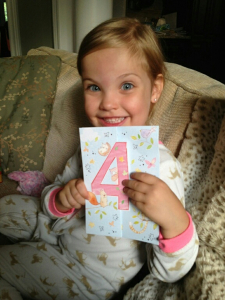 I’m concerned about my granddaughter Briar (four years old as she proudly proclaimed on August 12th) with pneumonia in Sick Kids Hospital in Toronto. She’s improving each day but it’s a lot to take for a little body.
I’m concerned about my granddaughter Briar (four years old as she proudly proclaimed on August 12th) with pneumonia in Sick Kids Hospital in Toronto. She’s improving each day but it’s a lot to take for a little body.
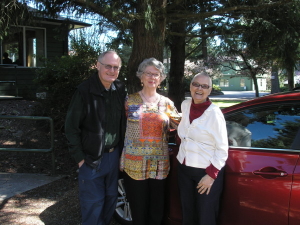 And I’m thinking of my friend Sharron who died on Sunday in Winnipeg. I’m sure I’ll devote a whole blog to Sharron who shone a big light in the world. May her enthusiasm and joy of life live on. Her husband Harvey is a fellow poet (actually, Sharron was a writer as well as an actor), and I send love to them both.
And I’m thinking of my friend Sharron who died on Sunday in Winnipeg. I’m sure I’ll devote a whole blog to Sharron who shone a big light in the world. May her enthusiasm and joy of life live on. Her husband Harvey is a fellow poet (actually, Sharron was a writer as well as an actor), and I send love to them both.
“So good to read your blog,” Sharron wrote in the comments less than a month ago. (Photo from April 12, 2014 with a surprise visit from Harvey Jenkins and Sharron Bertchilde at my book launch in Nanaimo.)
Staying with our feelings is what this season of darkness, I’m now realizing, is what it’s about. I’ve opted out of Christmas, mostly, because it has become all about excess. We tend to buy gifts for people who have everything already and create lots of light when we need some rest and darkness for awhile. We indulge in food and drink because we’re celebrating we say but aren’t we actually numbing the feelings?
“The late Irish writer John Moriarty believed that light blinds us to other realities,” Eve Joseph wrote in her brilliant book In The Slender Margin: The Intimate Strangeness of Death and Dying (HarperCollins, 2015). “Standing in his kitchen with the lights out, he could see the natural light on the water and the rocks and mountains in their dark homes; turn on the light in the kitchen and the world outside disappears.”
Thanks to my friend Jan McDougall, a writer friend in Tofino, who reminded me of these words near the end of Eve’s book: “The key is in the darkness. We must enter it in order to find our way home.”
It’s a difficult time of year for many. I find it to be that way. I miss my mother at Christmas as she made Christmas special for many years. I miss my Dad. I don’t see my children and grandchildren at Christmas so I miss them too.
I do though want to remember in the dark. Without the dark, nothing would grow. Without the dark of night, we would not have rest or dreams.
Clark Strand, in an op-ed piece about Winter Solstice in The New York Times last December, wrote:“Our consciousness is driven by light. And what it drives us is to is excess, in every imaginable form.” (“Bring On the Dark: Why We Need the Winter Solstice.”)
“We need a rest from ourselves that only a night like the winter solstice can give us. And the earth, too, needs that rest. The only thing I can hope for is that, if we won’t come to our senses and search for the darkness, on nights like these, the darkness will come looking for us,” he wrote.
Strand wrote about the “casualty” of darkness with the “influx of light as advances in human enterprise have been made.
“In times past people took to their beds at nightfall, but not merely to sleep. They touched one another, told stories and, with so much night to work with, woke in the middle of it to a darkness so luxurious it teased visions from the mind and divine visitations that helped to guide their course through life. Now that deeper darkness has turned against us. The hour of the wolf we call it – that predatory insomnia that makes billions for big pharma. It was once the hour of God.”
Clark Strand has a new book that I’m curious about: Waking up to the Dark: Ancient Wisdom for a Sleepless Age (Random House, 2015). Here’s a quote from the book included in Banyen Books & Sound’s Branches of Light: “I do not know how to put it more simply than that. In the dark we recover our simplicity, our happiness, and our relatedness, because in the dark we remember our souls. Once that happens, we know what life is. And then, finally, we remember how to live.”
At Solstice the balance has tipped as far toward the dark as it can go. Starhawk says: “In the realm of the Dark Mother, anything is possible. So if you want to change something in your life, or something about yourself, the Winter Solstice is a good time to work on it.”
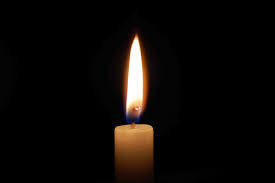 Christine Valters Paintner in her Abbey of the Arts newsletter says it this way: “What if you made a commitment to a new way of experiencing the moments of your days so that you created an opening to the new birth happening right now?”
Christine Valters Paintner in her Abbey of the Arts newsletter says it this way: “What if you made a commitment to a new way of experiencing the moments of your days so that you created an opening to the new birth happening right now?”
And here’s what Rainer Maria Rilke advised us many years ago about having faith in nights:
You, Darkness
You darkness that I come from
I love you more than the fires
that confine the world.
For fire only shines a circle
so those inside are blind beyond the light.
But the darkness welcomes everything.
Shapes and flames, animals and me,
how it swallows them,
people and powers –
And I have the feeling some vast presence
is stirring all around me.
I have faith in nights.
~R. M. Rilke, translation by Kim Rosen and Maria Krekeler

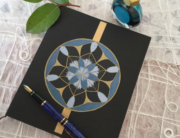
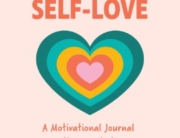
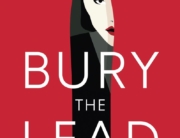
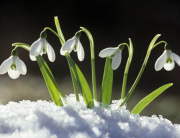
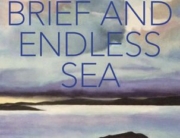
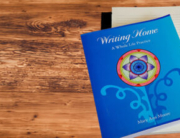
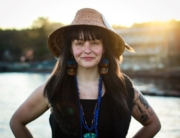
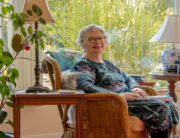
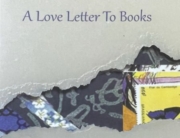
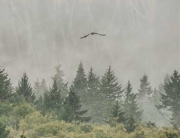
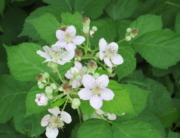
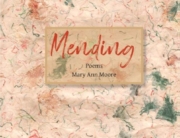
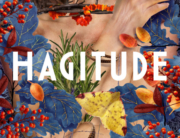
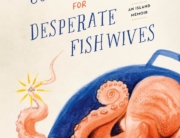
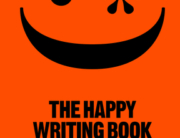
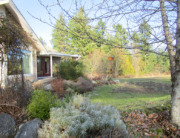
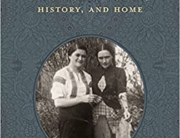
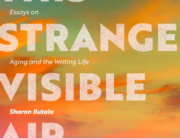
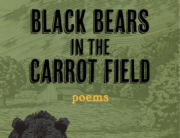
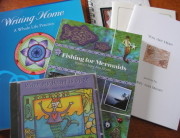
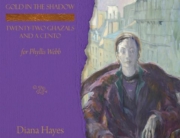
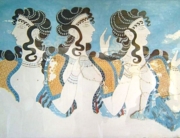
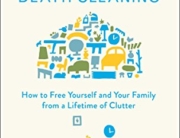
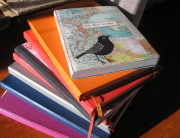
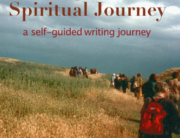
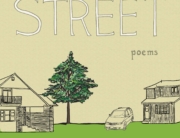
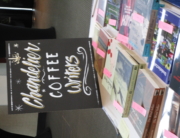
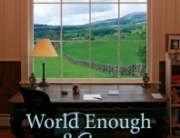
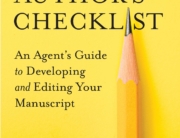
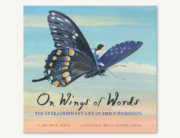

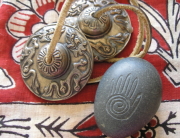
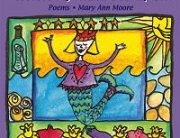
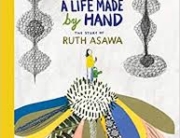
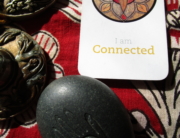
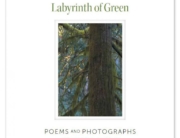
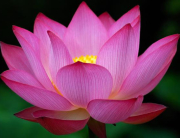
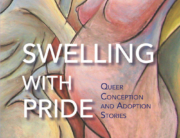
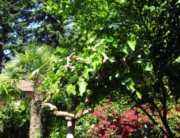
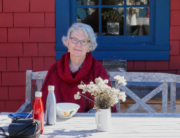
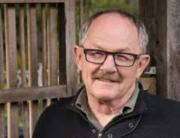
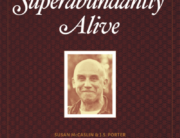
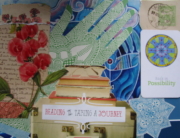
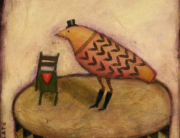
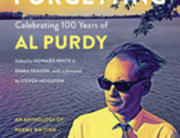
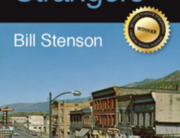
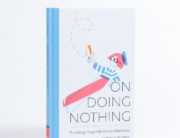
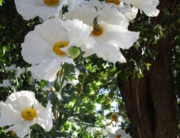
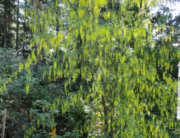
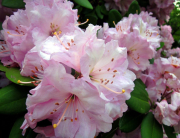
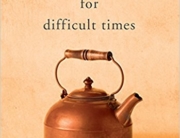
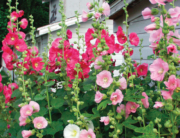
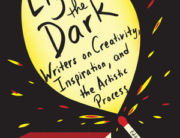
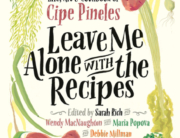
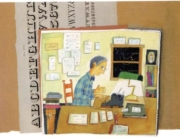
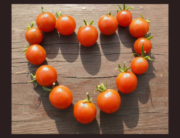
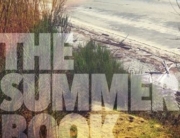
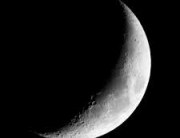
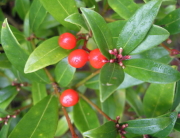
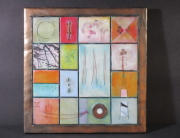
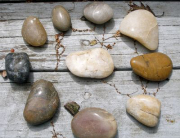
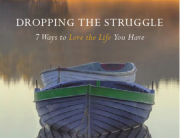

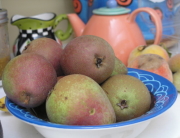
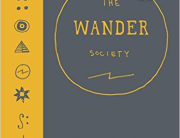
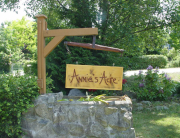
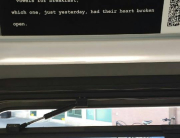
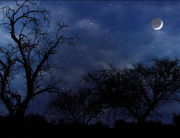
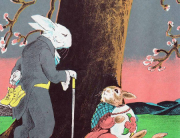
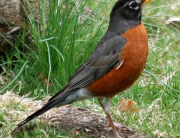
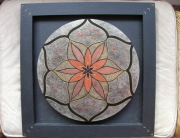

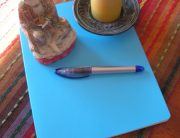

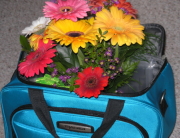
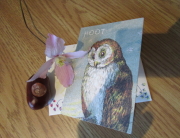
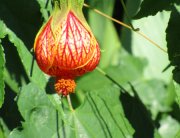
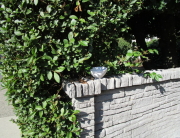
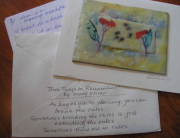
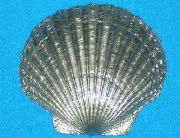
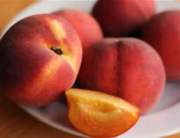
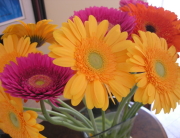
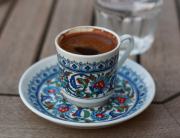
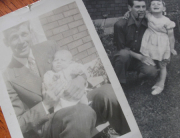
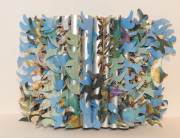


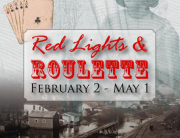
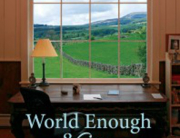
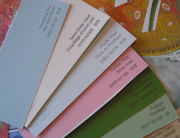
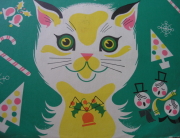
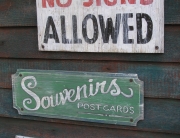

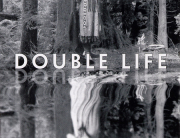
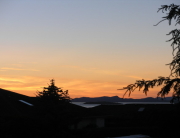
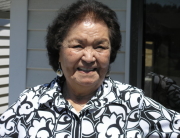
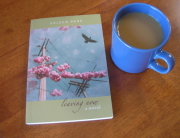
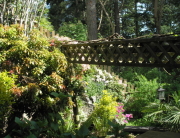
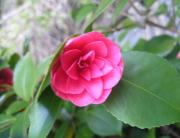

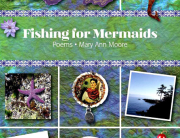
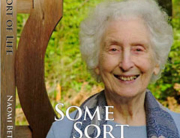
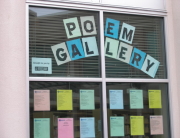
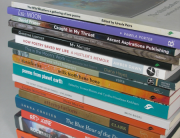

Thank you for writing these insights and lessons into such a thoughtful piece. I can identify with so much that you have woven together. You have a gift for finding threads that need to be picked up, needled, and sewn together. “Having Faith in Nights” gave me much to reflect on..
Mary Ann, I find this positive outlook on the darkness at this time of the year and
the focus on the coming light to be very helpful. I love the poem by Rilke.
Thank you,
Marlene
That line by Eve Joseph: “The key is in the darkness. We must enter it in order to find our way home.” which you quoted reminded me of St. John of the Cross (Juan de la Cruz)’s “dark night of the soul”—a necessary stage on the path toward rebirth into the light of mystical completion.
Darkness, light… never either / or, always both / and.
But I do love some of the delicious quietness of nights…